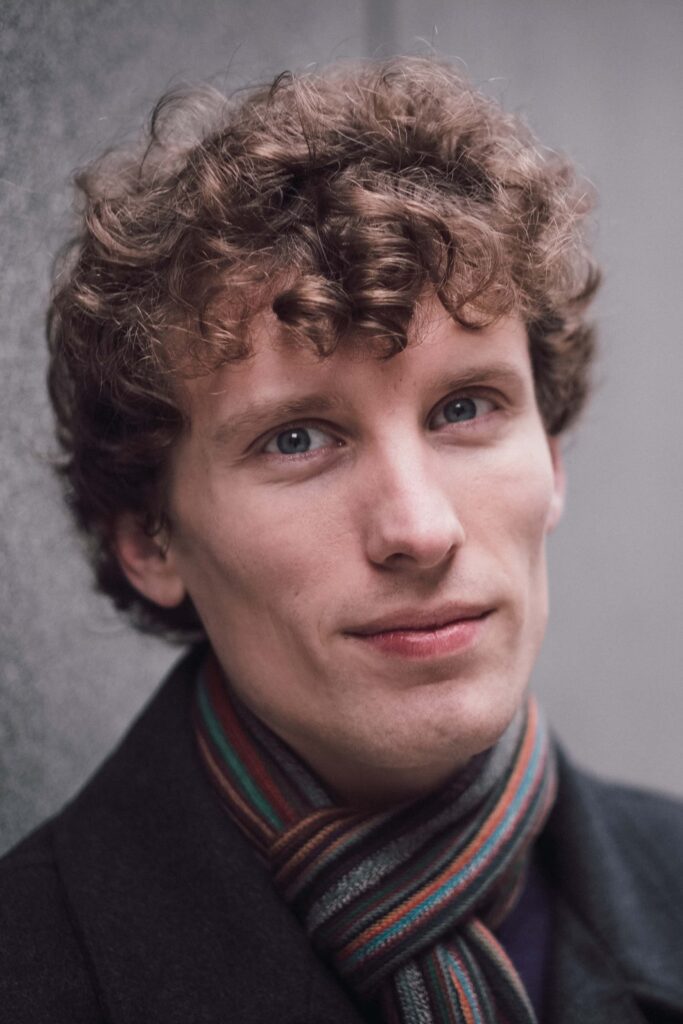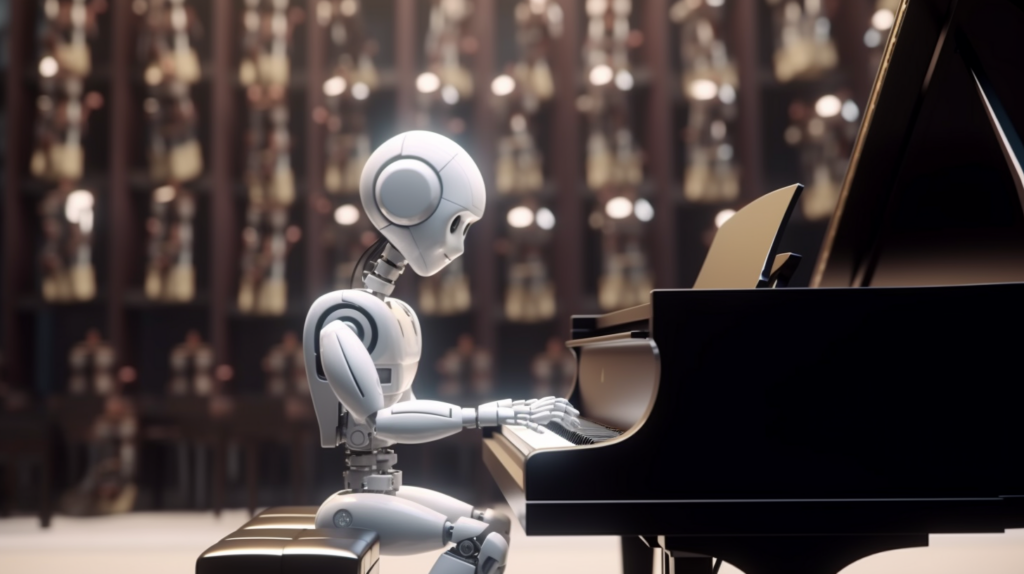Authenticity, sentimentality and originality are essential in classical music, but the rise of Artificial Intelligence (AI) threatens all three. In under a minute, a set of electronically generated notes can create a melody. Will AI undermine composers’ work in the future or will it help innovate compositions beyond human imagination?
“There’s so little understanding about what AI is and how people actually use it,” says Robert Laidlow, a classical music composer and former PhD researcher in AI at the Royal Northern College of Music. Premiering in London and Southampton, Laidlow’s piece Post-Singularity Songs uses ChatGPT for foregrounding.

By showing what AI thinks that music is, we can re-evaluate what music is to us
Robert Laidlow
“Art is not about the product, it’s about the process,” he says. “If you take a colour and put white behind it, you can see more shades of the colour. That’s what AI is to me. By showing what it thinks that music is, we can re-evaluate what music is to us.”
Rather than using AI to write music then claiming it as his own, Laidlow is more interested in the computer-generated sounds from applications such as Magenta’s DDSP-VST and PRiSM SampleRNN. DDSP-VST imitates an instrument played by a classical musician and SampleRNN makes new sounds based on samples. AI has pushed Laidlow in a new direction, allowing him to organise sounds differently and think of music in ways he had not considered before.
Since 2018, Laidlow has used AI alongside his composing, often drawing on AI’s unique sounds which he describes as “uncanny”. This is because when a computer tries to copy an instrument it ends up imitating breathing noises and mistaking them as notes, resulting in a muddled pitch in the generated piece.
Produced for BBC Philharmonic, the 40-minute Silicone is an AI orchestral piece composed by Laidlow last year. Laidlow is enthusiastic about what AI can offer to the classical music industry. “Silicone comes from celebrating human music making, thinking about what it means to do an orchestral performance and what place the machine has to define what that performance is,” he says.
Laidlow believes we need to understand the relationship between composers, classical musicians and AI. “When we had the premiere of Silicone, we had the DDSP-VST (the application which he uses to draw inspiration from AI) set up in the lobby so people could play it,” he says.
Laidlow thinks perspectives on this advancement in music can be changed with a greater understanding of it. “AI doesn’t need us to pretend it’s sentient, that it’s going to achieve some kind of singularity or it’s going to put everyone out of a job,” he says. “I think it’s really important to get your hands on this technology.”
It hands me what is the canned spray cheese of music
Nicole Russin-McFarland

Not all composers are embracing the rise of AI. Nicole Russin-McFarland, a film score composer from Chicago, creates motion picture soundtracks with a mix of classical music and electronic beats. However, she refuses to use AI in her practice because she says it undermines her originality. “It hands me what is the canned spray cheese of music,” she says. “There’s only so much you can do with it. I can’t build an octave jumping excitement of a piece or make it dip into the depressing elements of my soul if it’s basically a flattened, non-risk taking piece.”
Beyond this, McFarland also believes that AI could violate the rights of an artist. “AI takes musical inspirations from existing works to lay out its foundation for you to compose on top of it,” she says. “When we took ideas from other composers as our own, we used to call that plagiarism. I am not a plagiarist.”
To her, composing with AI is like cheating and downgrades her to a fake. She believes the score created from an artificial computer is nothing but a lacking replica: “If you make something like using a hip hop classic as a sample and working with it, that original hip hop track was created by humans. That’s why you love it.”
McFarland calls AI music generic, saying it appeals to social media where classical music isn’t a big deal and it doesn’t matter if it sounds cheap. She says it is just elevator music in assorted styles and music she uses to listen to fall asleep.
Laidlow also admits AI has drawn criticism and is often debated as a practice. “AI is built to analyse and solve problems fundamentally and philosophically,” he says. “With something that is abstract like classical music with barely any words, you get a clash between the two.”
Robert Laidlow’s piece Post-Singularity Songs will be released 17 July at Turner Sims.
Read: The true cost of ‘pay per stream’
Read more from our future voices here
Listen: AI music playlist

